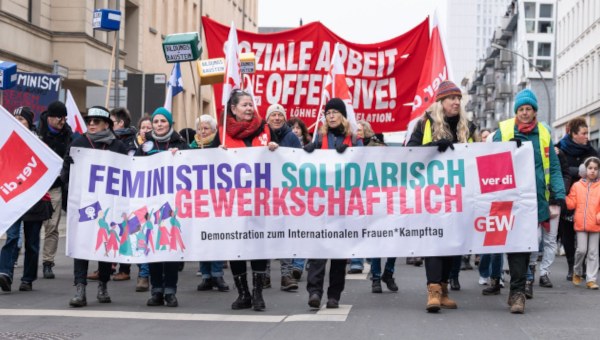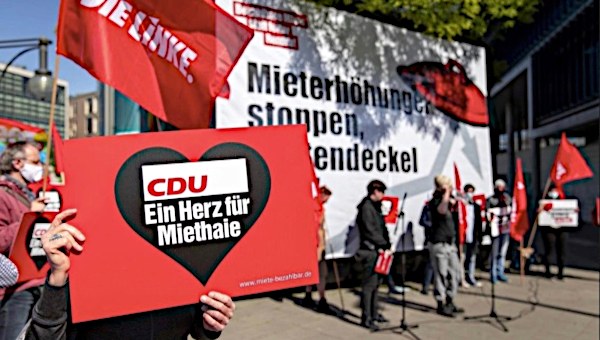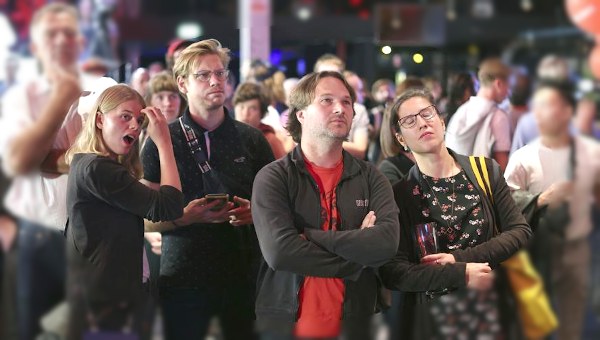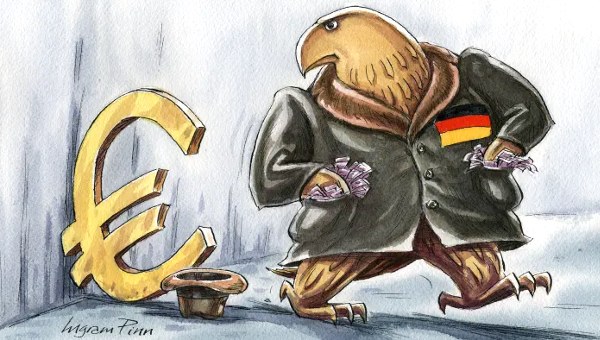It’s the Economy, Stupid: On the Breakdown of the Traffic Light Coalition in Germany
Chancellor Olaf Scholz (SPD) showed strong leadership twice: when he announced a turning point in rearmament after the Russian invasion of Ukraine. And when he dismissed Finance Minister Christian Lindner (FDP). As in the two previous years, Scholz wanted to suspend the debt brake in order to finance rearmament and subsidies for the private sector without drastic cuts in social spending. Lindner, however, insisted on such cuts.

In the early 2000s, Gerhard Schröder (1998-2005), as Social Democratic (SPD) Chancellor, pushed through social cuts of the kind that Lindner is now demanding. After that, his party plummeted from ratings of between 35 and 40 percent to around 25 percent in polls. After 16 years of Angela Merkel (leader of CDU, 2000-2018), that was enough for Scholz to become Chancellor in 2021.
With current poll ratings of around 16 percent, a repeat of Schröder’s social cuts would almost certainly push the SPD into single digits. But Lindner, whose FDP is below the 5 percent hurdle in current polls, decided to break up the coalition in the hope that his image as a liberal upholder of principles would help his party get back into parliament.
Early Elections in 2025
After the elections in February 2025, CDU leader Friedrich Merz will almost certainly move into the Chancellery. But he will have difficulty putting together a coalition. Since the Alternative für Deutschland (AfD) became the strongest or second strongest party in three state elections in eastern Germany with values of around 30 percent, all other parties have been trying to prevent the AfD from participating in government. So far without success.

Even if the AfD does not get 30 percent in the federal elections – the party is currently at 18 percent – forming a government will be difficult. The tug-of-war over possible coalitions, which began the day after Lindner was thrown out, will certainly play into the AfD’s hands. Especially since there are few convincing alternatives on the left. The Bündnis Sahra Wagenknecht (BSW) comes from Die Linke (the Left) but is distancing itself from its origins on its way to political obscurity. The Die Linke insists on being left-wing, but is having difficulty filling its political self-positioning with content and life.
The Strong Arm of Economic Power
Why has the dispute escalated recently? In Gerhard Schröder’s time, politicians across party lines agreed that privatisation, deregulation, and free trade were necessary to create prosperity for all. The only dispute was within the SPD, whose left wing rejected the neoliberal unity thinking of the time and soon afterwards merged with the PDS to form Die Linke.
Then, as now, the German economy was in recession. Then, as now, the Economist described Germany as the sick man of Europe, setting the tone for company bosses to sing the song of impending doom that can only be prevented by drastically reducing wages, social spending, and taxes. Politics must help profits get back on their feet.
Strictly speaking, it was all about extra profits then, as it is now. Despite the recession, i.e., falling value creation, profits rose in the early 2000s and they are still rising now. Recessions with falling profits occurred in 2008/09 following the global financial crisis that originated in the USA and in 2020/21 as a result of the COVID lockdowns.
In both cases, private companies demanded and received massive state aid. After state support financed from taxes and government debt put them back on track for rising profits, they do not want to let the current recession pass without securing tax breaks and falling wage costs.
For Lindner, the demands of the business community offered the opportunity to present his party, which is suffering from a loss of voters, as a reliable representative of capital and himself as an ideal overall capitalist, in the hope that he could become finance minister again in a CDU-led federal government. However, it is not certain that Merz would bring the FDP back into government. The conflicts that led to the collapse of the Scholz government will also preoccupy the next government, whatever it may look like.
No Return to Neoliberal Unity
All parties represented in the Bundestag agree on one point, with the possible exception of the Die Linke: the economy must be supported. But there are different ideas about how this should be done. Lindner represents the neoliberal way of thinking that has long dominated. Economics Minister Robert Habeck (Greens) initially advocated a mix of moderate Keynesianism and industrial policy with the goal of ecological restructuring. However, his plans were aimed more at ecology for high earners than at social ecology for all.
Since Scholz committed the government to armaments and war readiness, and his Foreign Minister Annalena Baerbock (Greens) has pushed for an ever more aggressive foreign policy course, ecology has become completely submerged in the tank tracks of rearmament and energy procurement at any price. But Lindner’s self-portrayal as a budget watchdog has also been damaged by the realignment of foreign policy. Lindner also wants to loosen up money for rearmament – but through drastic cuts to social budgets. The SPD, on the other hand, only wants to administer social cuts in homeopathic doses.
The political theater is based on conflicting interests within the bourgeoisie and between the bourgeoisie and the middle class. Parts of the bourgeoisie openly supported Habeck’s original plans. They saw an infrastructure renovated with state-funded coal and geared toward ecological issues as a locational advantage. Others, especially the automotive industry, had little to do with e-mobility. The energy sector wants to expand wind and solar energy as another business area but does not want to give up fossil fuels.
The middle class, which is more exposed to competition and has fewer financial reserves to weather crises than large corporations, is happy with any tax cuts and any subsidies. If the budget is to be balanced, then please do so at the expense of wage earners and pensioners. If such measures lead to a sustained slump in consumption – even more tax relief and subsidies will be demanded.
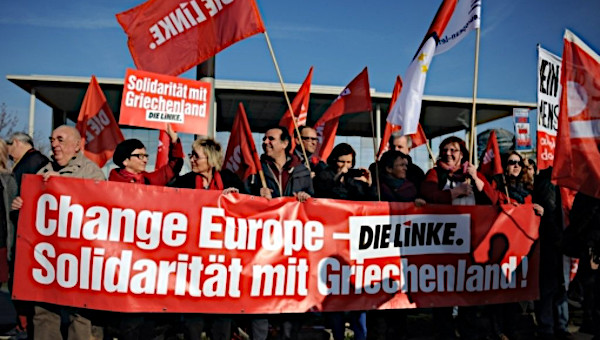
Rearmaments
There are also disagreements on the subject of rearmament. The arms industry is enthusiastic but does not play a major role in the economy as a whole., in contrast to the export industries, which like to make money from East and West trade. The turn toward sanctions, protectionism, and great power conflicts initiated by the USA since the global financial and economic crisis has, of course been causing uncertainty for some time.
Unconditionally following the USA, sold by Scholz as a turning point, was supposed to ensure political stability among the Western allies, but it has increased the economic uncertainty in trade with non-Western countries, especially China. After the re-election of Donald Trump in the USA, there is fear that, despite all the vassal loyalty, relations with the big brother will not be politically or economically stable.
Here and there, voices are being raised that Germany will then have to arm itself even more and play an independent role in world politics. However, this would not secure the market access created so far, and the fragmentation of the world market would continue to increase.
With so much real disunity in the ranks of the wealthy, politics cannot play the role of the ideal overall capitalist. All that the parties committed to capitalism can do is play the role of the bogeyman for problems that they can no longer manage.
In order to gain some approval from the lower classes, the mobility of the workforce should be restricted, i.e., immigration should be limited. On this one point, with the exception of the Die Linke, there was agreement among the parties represented in the Bundestag even before the government coalition broke up.
This will not save the mobility of goods and capital, and thus the livelihood of the former world export champion. The AfD is pleased. After all, it can claim, with some justification, that the other parties are finally doing what it has long demanded to save Germany. •


